Love them or hate them, year-end wrap-ups and best-of lists can help us make sense of our moment in history, and what moment in history has demanded that we search for clarity, meaning, and comfort like 2021? So, instead of offering a list of ASF staffers’ favorite books published this year, we asked our editors about the books they read this year that sustained, inspired, moved, or changed them, regardless of when the book was published.
What follows, then, is a hodgepodge of literary gems, including some new work, some old work, a lot of fiction, a nonfiction title or two, some books that tend toward the academic, and some that bend genre or that simply aim to delight.
With all of our best wishes for a Happy New Year,
— The Editors, American Short Fiction
—
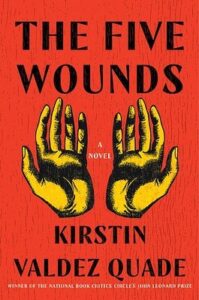
The Five Wounds by Kirstin Valdez Quade
Recommended by Adeena Reitberger
I’m undeniably obsessed with New Mexico, but the dramatic backdrop of the Sangre de Cristo Mountains and the scent of piñon and sagebrush aren’t the only reasons I love Kirstin Valdez Quade’s stunning debut novel. Set in the fictional town of Las Penas, The Five Wounds introduces us to the Padilla family: Amadeo, a perpetually misunderstood slacker grasping desperately for meaning and redemption; Angel, his teenage daughter, who shows up on his doorstep eight months pregnant after a fight with her mother; and Yolanda, level-headed, loving, enabling, the family matriarch and sole source of her family’s financial support, who in the novel’s early pages receives a shattering medical diagnosis. The Five Wounds is as much about failure, loneliness, and fragility as it is about hope, determination, love, and learning to see. It is also hilariously sharp, compassionate, and deeply imagined. I adore each character in all their beauty and messiness, and there’s plenty of both. To be honest, I love the book so much, I haven’t had the courage to finish it. It’s sitting right now on my bedside table with forty pages to go, waiting for the day I’ve properly steeled myself for its end.
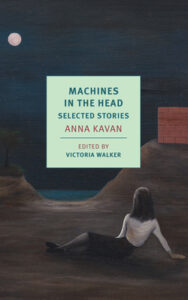
Machines in the Head: Selected Stories by Anna Kavan
Recommended by Michelle Raji
Describing this collection of stories seems an impossible task. With influences as diverse as Franz Kafka, Jane Bowles, and Leonora Carrington, Anna Kavan’s eclecticism reflects her unusual life story, which spanned Swiss psychiatric institutions, an orange farm in California, and a decades-long heroin addiction, before her untimely death in 1968. What I can say is that these stories often feature similar dynamics—troubled women contending with mysterious benefactors and indifferent authorities—and brilliant glimpses of a fragmented psyche. Expect gorgeous surrealist images (an elevator to heaven, a glowing meadow, a woman transformed into a fountain) that feel like fully realized versions of your most enigmatic dreams.
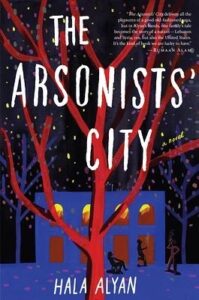
The Arsonist’s City by Hala Alyan
Recommended by Maurice Chammah
In the year of the Bad Art Friend and the Cat Person Was Me Essay, I had the strange and thrilling experience of finding a novel that remixed the details of my own life—unbeknownst to the author. Hala Alyan’s The Arsonist’s City features a violinist in a rock band (my past life) and vivid settings of places I’ve lived (Austin and Brooklyn) and have family roots (Syria and Lebanon). But tingling coincidences mean nothing unless you make something new with them, and Alyan masterfully constructs a tale of war trauma, immigration, and queer life in the Middle East that spans decades and transcends the family saga genre, using silence and absence—usually the prerogative of Alyan’s other genre, poetry—to say so much about what we don’t tell the people we love the most.
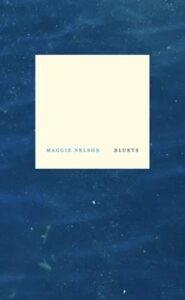
Bluets by Maggie Nelson
Recommended by Sol X. Wooten
While I read many new and well-worn pages in 2021, just once did I pick up a book that felt intimately bound to a particular experience in my life. I first came to Bluets on a melancholic night, a night when I wanted company but had no energy to interact with people—even those I love most. In this personal and philosophical essay, Nelson considers what it means to grieve a complex relationship and offers up an irresistibly odd assortment of blue objects and blue thoughts. When I’m feeling somber, I often want something that will pull me out of that mood, but sometimes I find a rare book that can carry me through it. Bluets carried me through.
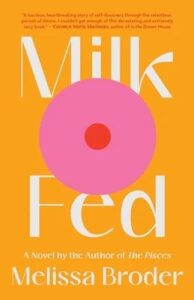
Milk-Fed by Melissa Broder
Recommended by Susan Quesal
The most anticipated book of the year for me was Melissa Broder’s Milk-Fed, and it did not disappoint. I devoured it, along with a ham sandwich and two sour beers, next to Lake Travis near Austin over the summer and enjoyed every second of it. People who struggle with their relationship to food may want to avoid this one—the calorie-counting protagonist spends a good portion of the novel describing her disordered relationship to food in Broder’s signature style. I love her novels so much for this rare and wonderful ability she has to write scenes that make you feel disgusted, aroused, and heartbroken at the same time, while you’re also laughing out loud. Ultimately though, Milk-Fed is a story about surrender and self-love, about learning what you actually want and allowing yourself to want it, and it was just the thing as we all emerged from the burned-out wreckage of 2020 and started to learn who we were in the world again.
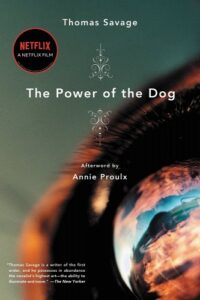
The Power of the Dog by Thomas Savage
Recommended by Alexander Lumans
I haven’t read too many Westerns, but when I picked up The Power of the Dog by Thomas Savage, I was prepared for a 1920s Montana populated by cattle-rustling cowboys and lots of dust. But Savage’s 1967 novel contains so much more; to call it a “Western” limits the scope of its brilliantly nuanced writing. Two ranch-owning brothers—Phil the loner who suffers nothing newfangled; George the reserved thinker with an inclination toward comfort—have a complex relationship. Then George marries a widow named Rose, and Phil is driven to sabotage their union. So many tiny moments in this novel stick with me: a boy watching the moon over a stream, a romantic picnic in the snow, Phil teaching Rose’s son how to braid a rawhide rope. Savage’s scenes are executed with such a deft eye toward haunting sentences as well as surprising consequences. To boot, without giving anything away, I’ll admit this is the first book in a long time with a final line that left me audibly exclaiming “Whoaaa” in equal surprise and horror.
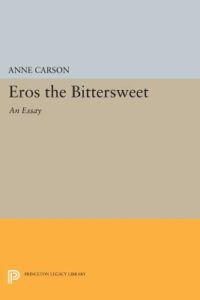
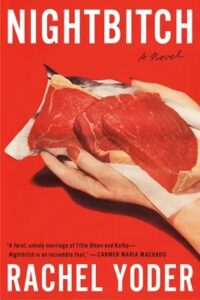
Eros the Bittersweet by Anne Carson & Nightbitch by Rachel Yoder
Recommended by Stephanie Frazee
I had big plans to have the Summer of Anne Carson—three months to read as much Anne Carson as humanly possible. Like most everything else this past summer, it didn’t quite go as planned. But, I discovered Eros the Bittersweet, a reworking of Carson’s dissertation into a book-length essay exploring writing about desire, covering everything from Sappho to Sartre to Woolf and Welty and Dante and Nietzsche, and only Anne Carson could have written this book, that’s for sure. Page after page, my mind was completely blown by the way the pleasure and pain of desire shapes all variety of written works in surprising ways. This book gave me a new way of reading, and by the end I felt like I needed to re-read everything I’ve ever read through this new lens. But that hasn’t quite gone as planned yet, either.
Nightbitch was a wild ride. Despite the magic and mysticism, there were times this book felt too real, and I’d have to put it down to process what I’d just read, and my own life choices in general. No big deal. This book didn’t shy away from the darkness of motherhood and art-making, the way the world often does. It didn’t buy into the idea that mothers need to be endlessly grateful for the opportunity to mother. This book faced the loneliness and mess of motherhood, dived in, and rolled around in it. Even more than that, what I loved about this book was that it didn’t shy away from the magic and raw joy of motherhood, and of creating art, and it was not afraid to go to the mystical place where the darkness and joy meet and turn into something that eludes explanation.
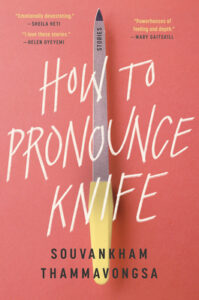
How to Pronounce Knife: Stories by Souvankham Thammavongsa
Recommended by Thao Votang
I’m still processing this collection. It is and does everything and then more. Not a single word in this collection of short stories goes to waste. Thammavongsa’s stories weave together moments of pain that diaspora populations know too well with the uncontainable joy of life. A combination that I’m frankly still stunned by. I was humbled to read the care Thammavongsa gave every single character because each simply wanted to find happiness. There were times I couldn’t breathe because I was so afraid of anticipated feelings, and then Thammavongsa would turn the story and remind me that there is happiness if we can just make it another step. And that’s something I still sit around with and can’t quite believe. I’m struggling to write anything about the collection because my words can in no way measure up to these stories. Read them now.
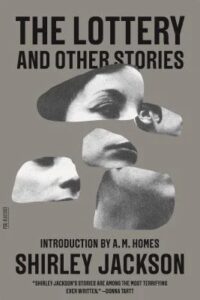
The Lottery and Other Stories by Shirley Jackson
Recommended by Patricia Ruiz Rivera
I’ve always loved Shirley Jackson, but there was something quite spooky about reading her short stories during the big Texas freeze. Reading wondrous yet horrific tales under the candlelight is somehow what kept us going. Jackson uses subtlety as a magnificent form of suspense. Her prose is powerful, haunting and unbelievably magnetic so much so that I nearly forgot that my house was freezing. Perhaps reading Jackson’s variety of stories reminded me that I am but a speck at the mercy of unpredictable forces of the world.
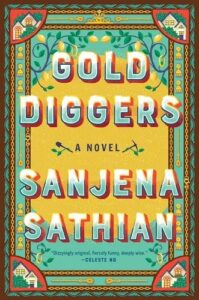
Gold Diggers by Sanjena Sathian
Recommended by Uriel Perez
My favorite novels have always been the kind that dazzle me with their originality and brim with an aching familiarity. Gold Diggers does both. Sanjena Sathian takes readers across space and time, introducing and re-introducing us to parents, friends, lovers all striving for an amorphous sense of success, and gloriously failing at every turn. The result is a strange brew that serves as both a biting critique of today’s peculiar anxieties—concerning status, finding purpose in late-stage capitalism—and a meditation on the perils of history and memory, inherited traumas and impossible aspirations. And yet, the book is tremendously funny and unremittingly tender. Sathian’s voice is a sure one, and it echoes with wisdom. This debut’s returns are priceless, and it deserves all the attention during best-of season.
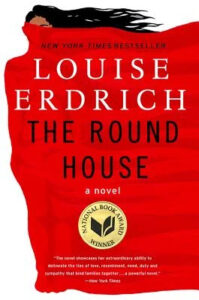
The Round House by Louise Erdrich
Recommended by Rebecca Markovits
I know I’m (characteristically) late to this party (pro tip from a committed introvert: I also like to leave early), but Louise Erdrich’s 2012 National Book Award-winning novel is so good. Set in the same Ojibwe reservation as her more sweeping The Plague of Doves, the novel tells the story of the thirteen-year-old Joe Coutts as he navigates the aftermath of a violent crime that shatters his previously safe and happy family life. The action of the story occurred in the late ’80s, and because Joe is narrating events through a teenager’s eyes but with the occasional benefit of hindsight, the book somehow has both a keen immediacy and a warm and wrenching nostalgia at once. Joe’s voice subtly mixes youthful honestly with grown-up insights. I love that Erdrich offers both a rich and moving picture of boyish friendships—the Star Trek role-playing, a beautiful moment involving the sharing of a coveted pair of basketball sneakers—and a necessary education in tribal suffering and the intricacies of tribal law. It is a perfectly balanced novel.
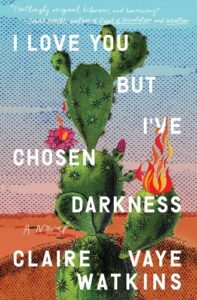
I Love You, But I’ve Chosen Darkness by Claire Vaye Watkins
Recommended by Amanda Faraone
Claire Vaye Watkins’ second novel is a twisty, difficult, darkly hilarious, and heart-wrenching account of what happens when the expectations of motherhood collide with your deepest desires. Her most meta work yet, this book is structurally ambitious, deeply felt, and chock-full of her signature strengths as a writer: searingly precise sentences, stunningly beautiful depictions of the Western landscape, and brutal emotional honesty.
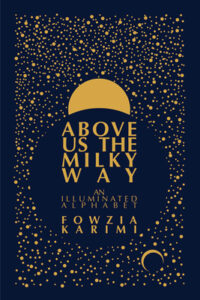
Above Us The Milky Way by Fowzia Karimi
Recommended by Emily Chammah
This illustrated novel is not only an emotionally rich, beautifully written, shattering-yet-hopeful account of a young girl and her family fleeing war in Afghanistan (which would be a triumph in itself); it is also a highly experimental, meditative account of memory, trauma, immigration, love, and loss. Each poetic chapter is structured around the alphabet, studded with vibrant illustrations and family photographs. It is wholly immersive, something to savor, to take in slowly.
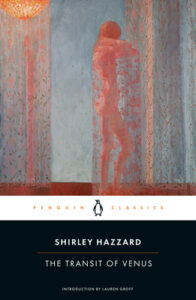
The Transit of Venus by Shirley Hazzard
Recommended by Willie Fitzgerald
A while back, someone told me The Transit of Venus was a masterpiece. Somehow, that person still managed to undersell it. This book is a marvel, rare as the celestial event from which it takes its name. The story follows two orphaned Australian sisters making their way in England (and later America), where they meet a doting astronomer, a caddish playwright, an ambitious diplomat—to summarize the plot, though, feels hopeless. Better to say that it is a story about love, betrayal, politics, and the arrival of the modern age. Hazzard crafts a narrative that sprawls but never meanders, that flies through time with dizzying confidence, that dodges, feints, confounds—she demands your closest attention and then rewards you tenfold for your efforts.
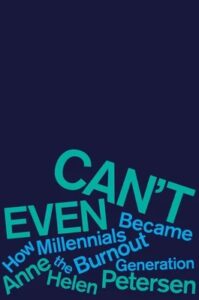
Can’t Even: How Millennials Became the Burnout Generation by Anne Helen Peterson
Recommended by Jen Brown
I am a woman of a certain age. Born in 1982, I knew when Can’t Even: How Millennials Became the Burnout Generation came up at brunch, I was going to have to read it but not because I thought I had any issues with adulting (I used a check ledger until very recently). I knew when I read the first few paragraphs of the viral Buzzfeed article of the same name, author Anne Helen Peterson was on to something. She spoke of “errand paralysis” and an inability to vacuum your car which I had been suffering from for years. Her book doesn’t just expand on the idea that as a generation we millennials are overworked, but it lays out through our particular American history how we got here and how that overwork results in our queer inability to do the most mundane tasks while successfully executing others. It didn’t leave me feeling hopeful but validated, which I prefer over hope, and I have not been able to stop recommending it to my friends.
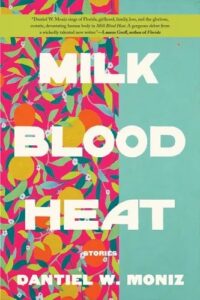
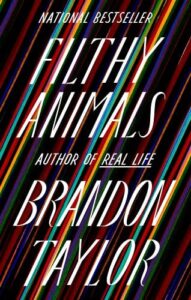
Milk, Blood, Heat by Dantiel Moniz & Filthy Animals by Brandon Taylor
Recommended by Peter Kispert
The eleven stunning stories in Dantiel Moniz’s debut collection are some of the most engrossing I’ve read in recent memory. From the structurally inventive title story, “Milk Blood Heat,” through masterful entries such as “The Hearts of Our Enemies” and “Snow” (originally published in American Short Fiction!), Moniz renders the plight and power of women and girls with care and lush, transporting prose. Though these are distinct stories, taken as a whole the book felt like witnessing a kind of miraculous atmospheric camouflage, too: a commonality in their deeply imagined Floridian backdrops. Though these are stories of damage and danger and loss, it is a testament to Moniz’s serious skill that each feels still so inflected with humanity and intimacy, moonlight even at their darkest. There were times when I truly could not put this book down, guided so deftly through its many tense and powerful scenes. I cannot wait to read what’s next from Dantiel Moniz.
With his debut story collection Filthy Animals, Brandon Taylor displays a tremendous skill for the craft of the short story. From the opening entry “Potluck” through memorable stories such as “Flesh” and “Meat,” Taylor writes his characters with power and restraint and a cool tenderness, in exacting and searching prose. A brilliant book from one my favorite voices in literature today, that transported me so easily and moved me deeply.
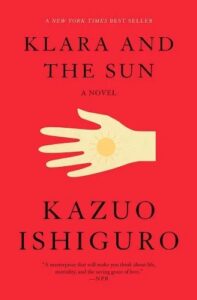
Klara and the Sun by Kazuo Ishiguro
Recommended by Nate Brown
In his eighth novel, Kazuo Ishiguro returns to themes familiar to readers of his earlier works, notably The Remains of the Day and Never Let Me Go. That said, Klara and the Sun is no stale rehashing of ideas. This novel is an elegant reconsideration of questions his protagonists have long asked themselves, namely: Why am I here, where am I headed, and am I worthy of love? Ishiguro only opaquely refers to the world of the novel, and reliable exposition is sparse, but this is as it should be. Readers experience the world of this novel through the eyes of Klara, its titular android protagonist. It’s from her tightly controlled, necessarily naïve perspective that details of Ishiguro’s scarily plausible near-future become clear. Alternatively tender and downright disturbing, Klara and the Sun is profound not for the future it posits, but because in it, Ishiguro once again elegantly explores the limits of self-knowledge, compassion, and love.
Love a great story? You can help American Short Fiction celebrate 30 years of publishing extraordinary fiction by making a tax-deductible contribution to our year-end giving campaign today.